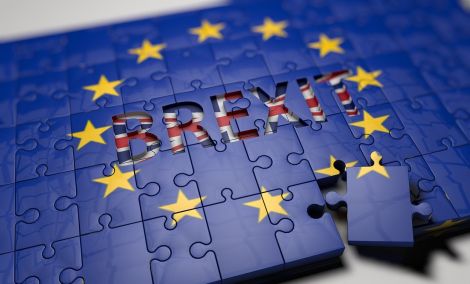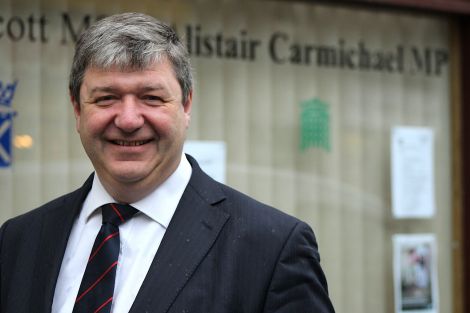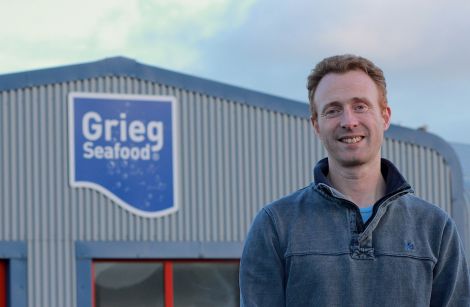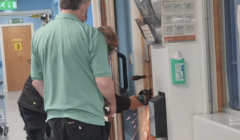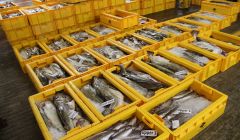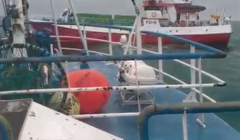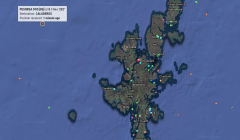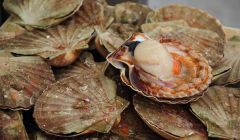Brexit / ‘Challenging times ahead’ as Britain leaves the EU
‘The cell door has been thrown open but the prisoner has agreed to stay inside for a few months more…’ (Collins)
AS THE UK officially leaves the European Union later tonight at 11pm, very little will change in practicable terms until (at least) the end of year.
With Leavers and Remainers across the country marking the massive symbolism of the day in their own ways tonight, the potential consequences of Brexit will only become clearer once the long-awaited trade talks with the EU get under way.
Locally, this will be closely followed particularly by the fishing industry fearful that all promises made about ‘taking back control of the UK’s fishing waters’ could soon be forgotten with bigger fish to fry between the EU and the UK.
Chief officer of the Shetland Fishermen’s Association Simon Collins said: “Although the UK will legally become an independent coastal state, with full rights under international law to decide who can fish in its waters, and how and when, it has also agreed to refrain from exercising those rights until the end of this year.
“That means that for our fishermen, the world in terms of rules, regulations and quotas will look exactly the same on 1 February as it did before. It’s as though the cell door has been thrown open but the prisoner has agreed to stay inside for a few months more…”
He said the industry would continue to be nervous of a sell-out until practical control over our own waters has been signed, sealed and delivered.
“The argument that fishing is a small industry and could (or even should) be sacrificed for a trade deal is based on false premises,” he said.
“The UK exports over £290 billion-worth of goods to the EU every year, and the EU exports around £350 billion-worth every year to the UK. It is manifestly in both sides’ interest to strike a trade deal, and on those figures at least the EU needs one even more than the UK does.
Become a member of Shetland News
“Are we really saying that the UK should give up something of value (its fishing grounds) in return for something both sides want (a trade deal)? What kind of bargaining is that?
“The same is true of financial services: the City of London’s global weight in international finance benefits the EU as well as the UK, meaning that both sides have an interest in its continued pre-eminence.”
But Northern Isles MP Alistair Carmichael, a staunch Remainer who was last month re-elected for the 6th time to represent Orkney and Shetland, warned that the real challenges only lay ahead with only very little time available to negotiate a trade deal beneficial to the UK.
“Our departure from the European Union on Friday night is not the end but the start of a new and even more challenging chapter in the Brexit story. The war may be over, but there is still a peace to be won,” he said.
“Many promises were made in areas crucial to Shetland including fisheries. Whether or not these promises are delivered is now down to political will.
“Will Boris Johnson be prepared to pay the price on fisheries, or will he reach the same conclusion as his predecessors in the 1970s, that fishing is ‘expendable’?
“Time will tell. The problem for the prime minister is that with eleven months until the true “Brexit day”, time is not on his side.”
Other local industries such as the large local aquaculture sector are keeping a close eye on developments while reducing its exposure to any potentially detrimental changes.
Grant Cumming, who is managing director of Grieg Seafood and chairman of Shetland Aquaculture, said: “We are maintaining a watching brief.
“Since 2016 we have repositioned our sales to minimise our exposure to a hard Brexit and the majority of our sales are UK based. We are confident that there will be a market for our product regardless of the outcome of Brexit talks.
“Recent signals from government regarding immigration are more encouraging and we would welcome prioritising immigration to areas of the UK which require it.”
One of the first signs of the UK not being a member of the EU any longer will be the introduction of the new blue passports as of early 2020. These will be phased in over time while the current passports continue to be valid.
During the transition period until 31 December the UK will continue to stay in the single market while all EU laws apply. As such there will be no restrictions on travel within the EU and the European Health Insurance Card stays valid.
EU citizens wanting to remain in the UK have until 30 June 2021 to apply for settled status, and once granted, can continue living and working in the UK.
Scottish health secretary Jeane Freeman, meanwhile, has written to all EU nationals working in Scotland’s health and social care services to thank them for the work they do and to stress that they are welcome in Scotland.
Become a member of Shetland News
Shetland News is asking its many readers to consider paying for membership to get additional features and services: -
- Remove non-local ads;
- Bookmark posts to read later;
- Exclusive curated weekly newsletter;
- Hide membership messages;
- Comments open for discussion.
If you appreciate what we do and feel strongly about impartial local journalism, then please become a member of Shetland News by either making a single payment, or setting up a monthly, quarterly or yearly subscription.






